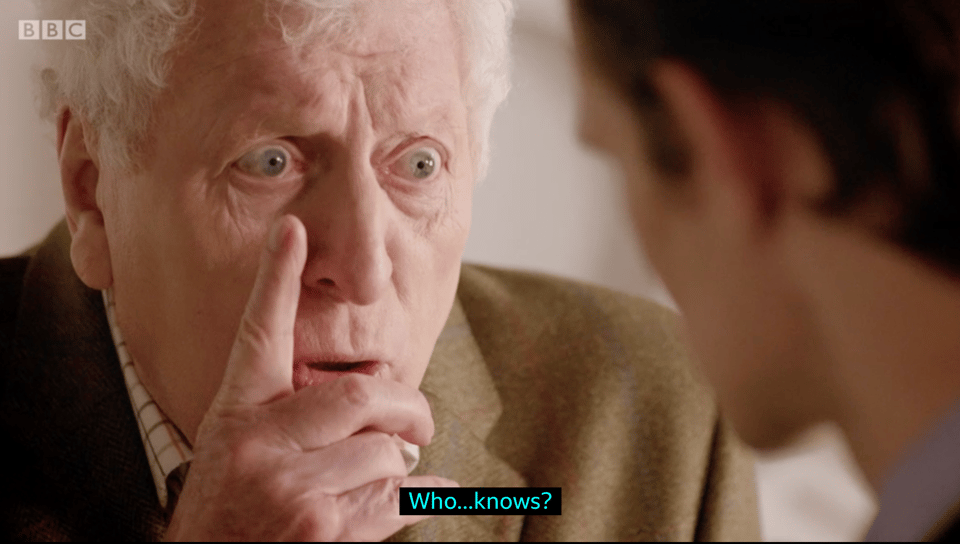Famous Last Words - Part Two
“You’re never gonna see me cry the last goodbye.”
Yes, that title is more than a trifle oxymoronic. But bear with me.
Earlier this month, we looked at the last words of various incarnation of the Doctor, and what they might have in common. (Or not.) All the examples we worked with were lines said by the actor playing the Doctor immediately before their character regenerated into a new incarnation played by a new actor. That was our (my) definition of “last words”. An essentially fiction-based one, that treats a television Doctor’s screen-time as a life and their departure as a death. Famous last words in the Nelson or Oscar Wilde sense.
But there are, of course, other ways of counting “last words”. Even before he returned in 2013 and 2023 David Tennant recorded a whole The Sarah Jane Adventures story, one made after but transmitted before, The End of Time (2009/10) in character. Although Peter Davison recorded his regeneration into Colin Baker on the last day of shooting for The Caves of Androzani (1984) he had to do some running about in cave sets after dying on the TARDIS console room floor.
The same thing had happened to William Hartnell nearly two decades earlier; he’d been transmogrified into Patrick Troughton at the start of recording and then had to shoot the rest of The Tenth Planet (1966) Episode 4 before being allowed to go home.1 Such is the nature of film and television production. It doesn’t have any impact on what the audience experiences, of course. But it’s another criterion to use for what we’re looking at. Another way of drawing lines.
What does have an impact on the audience, however, is that all of the twentieth century Doctors returned to the role at least once after leaving the show. So we might fairly argue that the last words of Messrs Hartnell to Pertwee should be the last words the audience heard from them in their respective lasts of those returns. For everyone else, the actual last words are still up in the air. Because they can always come back again.

Currently Tom Baker’s last words as Doctor Who2 on television are “Who knows?” or possibly “Who Nose” (official subtitles be damned). But that is subject to change, depending on Mr Baker’s health and indeed whims. They could have changed two years ago, but he was uninterested in appearing in The Power of the Doctor (2022) alongside all his twentieth century successors and no fewer than three of the twenty first century Doctors.